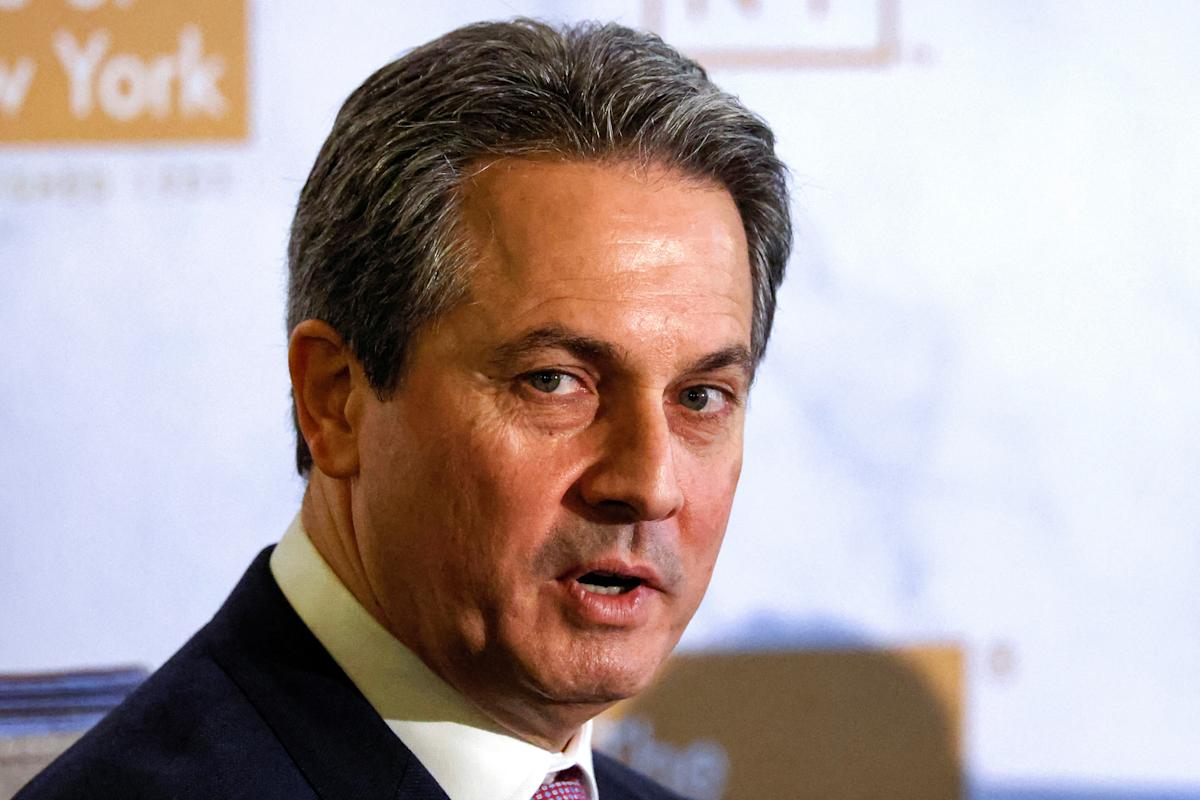St. Louis Federal Reserve president Alberto Musalem said Wednesday that he expects the job market to cool gradually and downplayed long-term concerns about inflation, an evolving stance that could open the door for support for rate cuts this fall.
“With the pace of hiring low, any increase in layoffs could produce a more substantial labor market weakening than would occur in a more active market,” Musalem said in a speech at the Peterson Institute in Washington, D.C.
“While I am not hearing from businesses about an imminent increase in layoffs, real GDP growth that is somewhat below potential and profit margin pressures related to tariffs could contribute to such an outcome,” he said.
Musalem appeared less concerned in his speech about inflation, saying he expects the effects from tariffs will work through the economy over the next two to three quarters and that the “impact on inflation will fade after that.”
It was a notable shift from Musalem, a Fed hawk who has been warning this year about the potential for elevated inflation risks.
The Fed next meets on Sept. 16-17. Investors widely expect the central bank to make its first cut of 2025.
Fed governor Chris Waller on Wednesday reiterated he wants to cut rates at the Fed’s next policy meeting because he’s concerned the job market is weakening and wants to stave off any real drop.
“I’ve been clear that I think we should be cutting by the next meeting,” Waller told CNBC in an interview. “The labor market has come in much softer … and you want to get ahead of having the labor market go down because usually when the labor market turns bad, it turns fast in a nonlinear fashion, it doesn’t just kind of creep up.”
Waller noted that he sees multiple cuts over the next three to six months to get to the so-called neutral rate of 3% — the level on the Fed’s benchmark interest rate designed to neither spur nor slow economic growth.
Read more: How to maximize your interest earnings following a Fed rate cut
“I think we need to start cutting rates for the next meeting, and then we don’t have to go in a lot sequence of steps. We can kind of see where things are going because people are still worried about tariff inflation,” he said.
Musalem did not tip his hand about what he may advocate for at the next meeting. He also made it clear that his concerns about inflation have not evaporated.
He noted that there’s a reasonable possibility that inflation could run above the Fed’s 2% target more persistently if indirect effects on non-imported goods and services or second-round price increases stemming from tariffs cause the adjustment process to take longer.


